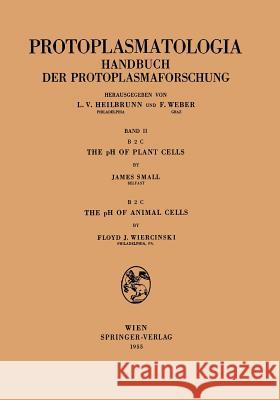The PH of Plant Cells the PH of Animal Cells » książka
The PH of Plant Cells the PH of Animal Cells
ISBN-13: 9783211803868 / Angielski / Miękka / 1955 / 173 str.
I. Introduction Early estimatiOons Oof pH values in plant cells were based UPOon determina tiOons Oof the electrOomOotive fOorce (EMF) develOoped between a standard hydrOo gen electrOode and the fluid expressed frOom crushed tissues Oor liberated by cutting large algal cells such as thOose Oof Valonia, Chara Oor Nitella. These EMF values were then translated intOo terms Oof hydrQgen iOon CQncentratiQn Qn the assumptiQn that the numerical value Qf the EMF in VOolts depended entirely UPOon the cOoncentratiOon Qf hydrOogen iQns. Then hydrQgen iQn COoncentratiOon measured in this way was fQund tOo act in biOoIQgical reactiQns, mainly enzyme activity, in such a way that the apparent hydrQgen iOon cOoncentratiOon was related lQgarithmically tOo the prQcess investigated. SQ SORENSEN in 1909 intrQduced the pH scale based upOon what he called the 1 "hydrOogen-iOon eXPOonent. " He defined PH+ as -(1 (1909, p. 28, nQt p. 4) Oog PH;) and PH+ became pH as a matter Qf tYPOographical cQnvenience. As far as living, uncrushed, plant cells were cOoncerned, the available fluid was usually soo minute in amQunt, except in special cases, that hydrOogen electrQde methQds were nOot applicable tOo a general survey. AttentiOon was therefQre directed tOo pH indicatOors. These indicatQrs vary in cOoIQur, usually frQm Qne cQIOour tOo anOother cQIQur with dichrQic inter mediate tints within a range Oof 1.











